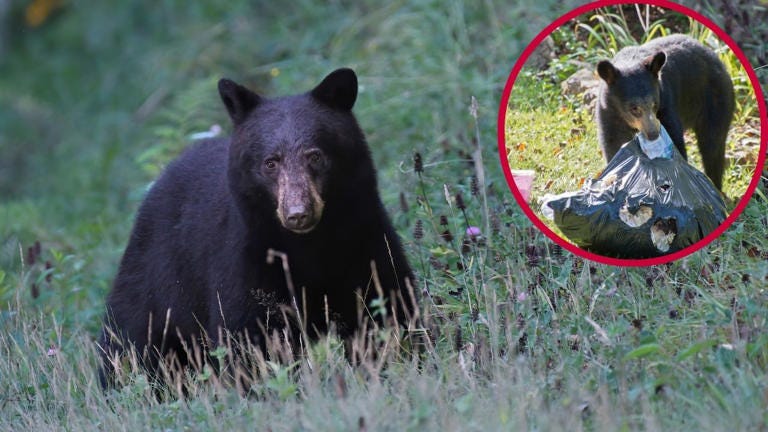Multiple Black Bear Sightings In Eastern Massachusetts - What To Do If You Encounter One
Black bears are back in Eastern Massachusetts, but are you ready for a close encounter?
Over the past few years, black bears have made a comeback in Eastern Massachusetts, with sightings getting more common each season. Though once abundant throughout Massachusetts, a combination of past deforestation and hunting decimated the bear population, causing them to become exceedingly rare throughout the 1800s and 1900s. With new hunting regulations and an increased conservation effort, we are now beginning to see a steady rise in bear populations, which have in turn led them to seek new territory further east.
Over the past few weeks, there have been several reported sightings of black bears in various Eastern Massachusetts towns, including but not limited to Holland, Easton, Scituate, Clinton, Paxton, Walpole, Southwick, and East Bridgewater. While this uptick in activity is certainly exciting news for the bears themselves, it also leads to an issue that most Eastern Mass residents have not had to deal with before. What do you do if you come across a bear?
According to the Commonwealth of Massachusetts' official website, black bears are generally wary of humans and particularly do not like loud noises. For these reasons, it is unlikely that a wild black bear will actually approach you so long as you leave them alone. Despite that fact, it is still valuable to know what to do should you ever find yourself in close proximity to a wild bear. Mass.gov has provided several quick tips for avoiding bear conflicts:
Never Intentionally Feed Bears: Intentional feeding can cause a bear to lose their fear of people. This can lead to a bear becoming a threat to human safety and needing to be euthanized. Keep bears wild by never intentionally feeding wildlife.
Remove Bird Feeders: Bird seed, suet, and spilled seed attract bears. Bird feeders draw bears closer to people, causing them to lose their fear of people. There is no safe time of year or day to have bird feeders out. Attract birds naturally by growing native plants.
Protect Chickens, Bees, and Livestock: A standard coop or pen will not keep out a bear. Properly install and maintain electric fencing to protect your chickens, hives, goats, sheep, and other livestock from bears. Visit mass.gov/bears for electric fencing tips.
Secure Trash and Compost: Store garbage in closed containers in a garage or outbuilding and put it by the roadside the morning of pickup. Keep compost enclosed.
Protect Pets: Keep dogs leashed whenever they’re outdoors and never let dogs chase or interact with bears. Check the yard before going outside with your dog. The presence of a dog could trigger a bear to be aggressive.
If You Encounter A Bear: Black bears are usually wary of people. If you see a bear in your yard, wait for the bear to leave, then remove or secure food sources on your property. If you encounter a bear in nature, talk in a calm voice and slowly back away. Do not run. Fight back if a black bear makes contact with you.
ls/learn-about-black-bearsounter one, please visit: Hopefully, things will not become so dire as to have to use the final piece of advice in that last tip. Instead of going head-to-head with a 600-pound apex predator, it is probably better to just try and avoid them. For more information on black bears in Massachusetts and what to do if you encounter one, please visit: www.mass.gov/info-details/learn-about-black-bears.






